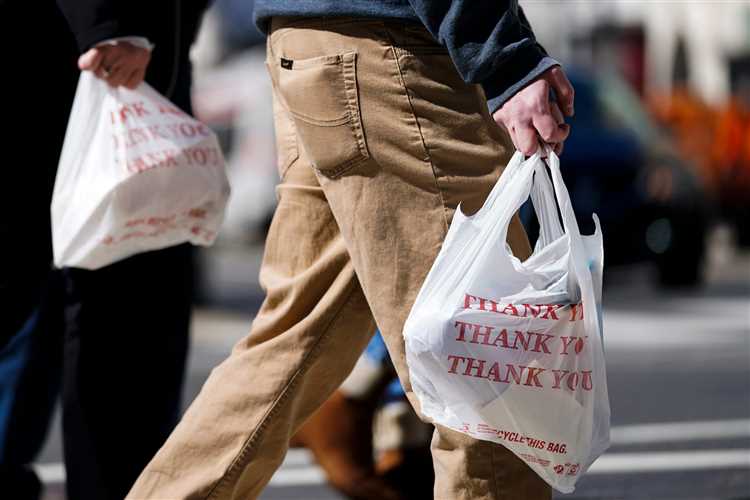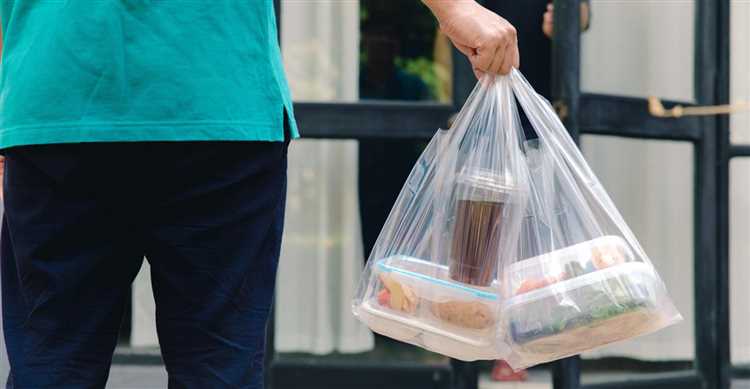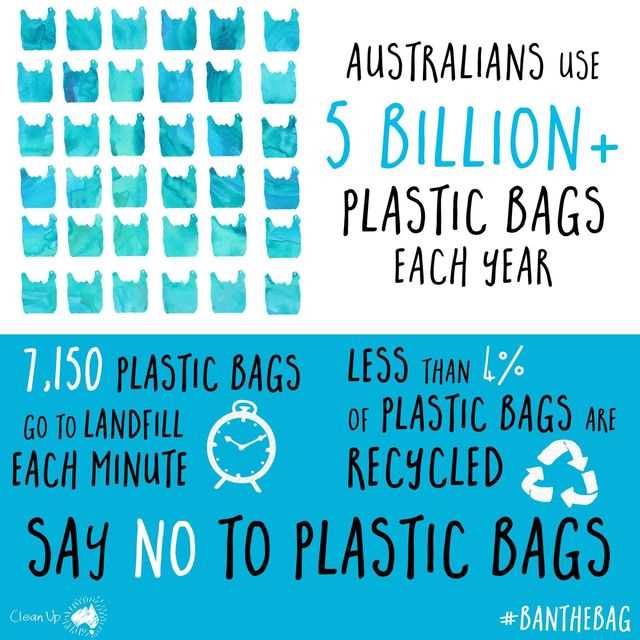
Plastic bags have become an ubiquitous part of our modern society. They are lightweight, durable, and convenient. However, their negative impact on the environment cannot be ignored. Plastic bags are responsible for a significant amount of pollution, from clogging up landfills to harming marine life.
In recent years, there has been a growing movement to ban plastic bags in order to protect our planet and promote sustainable practices. Many cities and countries around the world have already implemented such bans, and the results have been encouraging.
By eliminating or reducing the use of plastic bags, we can significantly decrease the amount of waste that ends up in our landfills and oceans. Plastic bags are not biodegradable, which means that they can take hundreds of years to break down. During this time, they release toxic chemicals into the environment and pose a serious threat to wildlife.
The plastic bag ban is not just about reducing pollution; it is also about changing people’s behavior and encouraging them to adopt more sustainable habits. By banning plastic bags, we are nudging individuals to consider alternative options, such as reusable bags or biodegradable alternatives. This shift in mindset can have a ripple effect, inspiring people to make more eco-friendly choices in other aspects of their lives as well.
Moreover, the plastic bag ban sends a strong message to the industry and encourages businesses to find alternative packaging solutions. It promotes innovation and encourages the development of more environmentally friendly materials and practices.
While the plastic bag ban may be seen as just a small step, it is a crucial one towards environmental advocacy and creating a more sustainable future. By taking action now, we can make a significant difference in preserving our planet for future generations.
- Benefits of Banning Plastic Bags
- Environmental Impact of Plastic Bags
- Global Efforts Towards Plastic Bag Ban
- European Union
- Africa
- Asia
- Implications for Businesses and Consumers
- Alternative Solutions to Plastic Bags
- Question-answer:
- Why should we ban plastic bags?
- How can banning plastic bags be beneficial for the environment?
- Are there any alternatives to plastic bags?
- What are the potential drawbacks of banning plastic bags?
- How effective have plastic bag bans been in reducing pollution?
- What is the purpose of a plastic bag ban?
Benefits of Banning Plastic Bags
Implementing a ban on plastic bags can bring about numerous benefits, some of which include:
- Reduced environmental pollution: Plastic bags are notorious for their negative impact on the environment. Banning them can significantly reduce plastic waste that often ends up in oceans, rivers, and landfills, harming wildlife and ecosystems.
- Conservation of natural resources: By banning plastic bags, we can conserve valuable natural resources such as oil and natural gas, which are used in the production of plastic bags.
- Promotion of sustainability: Banning plastic bags encourages individuals and businesses to seek alternative, more sustainable options for carrying goods, such as reusable bags made from eco-friendly materials. This promotes a culture of sustainability and responsible consumption.
- Cost savings: The production, distribution, and disposal of plastic bags come at a significant cost to communities. Banning plastic bags can help reduce these costs, as well as the financial burden associated with waste management and cleanup efforts.
- Improved aesthetics: Plastic bags are often found littered on streets, parks, and natural landscapes, greatly affecting the visual appeal of these areas. By implementing a ban, communities can enhance the cleanliness and beauty of their surroundings.
- Protection of wildlife: Plastic bags are frequently mistaken for food by marine animals, birds, and terrestrial wildlife, leading to injury, suffocation, and death. Banning plastic bags can help protect wildlife and preserve biodiversity.
- Health benefits: Plastic bags can pose a health risk, as they may leach harmful chemicals into food or water. By switching to alternative options, such as reusable cloth bags, we can reduce our exposure to these potential health hazards.
Overall, a ban on plastic bags brings multiple benefits to the environment, natural resources, communities, and human health. It is an essential step towards environmental advocacy and sustainable living.
Environmental Impact of Plastic Bags
Plastic bags have become a significant environmental concern due to their negative impact on the ecosystem. These bags, which are made from non-renewable resources such as oil and gas, take hundreds of years to decompose naturally. As a result, plastic bags accumulate in landfills, clogging up the waste disposal systems and taking up valuable space.
When plastic bags are littered, they can have devastating effects on wildlife. Birds and marine animals often mistake plastic bags for food and can choke or suffocate on them. Additionally, plastic bags can entangle animals, leading to injury or death. This is particularly true for marine life, as plastic bags can float in water bodies and pose a significant threat to sensitive aquatic ecosystems.
Plastic bags also contribute to air and water pollution. Manufacturing plastic bags releases harmful greenhouse gases into the atmosphere, contributing to climate change. Moreover, the process of producing plastic bags requires large amounts of energy and water, further depleting valuable resources. When plastic bags end up in oceans and rivers, they break down into microplastics, which can contaminate water sources and harm marine life.
Furthermore, the production of plastic bags contributes to deforestation. Forests are often cleared to make way for oil palm plantations, which are used to produce plastic bags. Deforestation leads to the loss of valuable habitats for many species and exacerbates climate change by reducing carbon sequestration.
Overall, the environmental impact of plastic bags is far-reaching and detrimental. It is crucial for individuals and governments to take action to reduce the use of plastic bags and implement sustainable alternatives to protect our planet for future generations.
Global Efforts Towards Plastic Bag Ban
Plastic bag pollution has become a global issue, and many countries around the world have taken steps to address it by implementing plastic bag bans. These efforts reflect a growing global awareness of the environmental impact of plastic bags and the need for sustainable alternatives.
European Union
The European Union has been a leader in the global fight against plastic bag pollution. In 2015, the EU introduced legislation that requires member states to reduce the consumption of lightweight plastic bags. As a result, many European countries have implemented bans or imposed fees on plastic bags, leading to a significant decrease in plastic bag usage.
Africa
Africa is also making strides towards a plastic bag-free future. Several countries, including Kenya, Rwanda, and South Africa, have implemented comprehensive bans on plastic bags. These bans have been instrumental in reducing plastic waste and promoting the use of reusable bags in Africa.
Asia
In Asia, countries like China, India, and Bangladesh have also taken steps towards reducing plastic bag usage. China, for example, banned the production and sale of ultra-thin plastic bags in 2008, which has resulted in a significant reduction in plastic bag consumption. India has also implemented a nationwide ban on plastic bags, and Bangladesh was one of the first countries to ban plastic bags back in 2002.
Additionally, many other countries in Asia, such as Thailand, Indonesia, and Malaysia, have either implemented bans or introduced fees on plastic bags to curb plastic pollution.
These global efforts towards a plastic bag ban demonstrate the collective commitment to tackle plastic pollution and promote more sustainable practices. While there is still a long way to go, the progress made so far is a positive step towards a cleaner and healthier planet.
Implications for Businesses and Consumers

The ban on plastic bags has significant implications for both businesses and consumers. For businesses, this means finding alternative packaging solutions that are more sustainable and environmentally friendly. They may need to invest in reusable bags or paper bags, which could increase production costs. Additionally, businesses may also need to educate their customers about the reasons behind the ban and encourage them to bring their own bags.
For consumers, the plastic bag ban means that they will need to adapt their shopping habits. They will need to remember to bring their own bags and be prepared to pay for bags if necessary. This may also require a change in mindset and a shift towards reusable alternatives.
However, the ban also presents an opportunity for businesses and consumers to align themselves with environmental advocacy. By supporting the plastic bag ban and making sustainable choices, businesses can enhance their brand image and appeal to environmentally-conscious consumers. Similarly, consumers can feel empowered by their contribution towards reducing plastic waste and protecting the environment.
Overall, while the plastic bag ban may initially pose challenges for businesses and consumers, it also offers an opportunity for positive change. With a shift in mindset and a commitment to sustainability, businesses and consumers can play an active role in environmental advocacy and make a significant impact on reducing plastic pollution.
Alternative Solutions to Plastic Bags

As governments and individuals become more aware of the negative impact of plastic bags on the environment, alternative solutions are being sought out and implemented. These alternatives aim to provide a more sustainable and eco-friendly option for carrying groceries, shopping, and other everyday items. Some of the most commonly used alternatives to plastic bags include:
| Alternative | Description |
|---|---|
| Reusable Cloth Bags | These bags are made from durable materials such as cotton or canvas and can be used multiple times. They come in various sizes and designs, making them a fashionable and practical choice for carrying items. |
| Paper Bags | Paper bags are biodegradable and can be easily recycled. They are commonly used in grocery stores and can be reused for various purposes, such as wrapping gifts or storing items. |
| Biodegradable Bags | These bags are made from materials that are designed to break down naturally over time. They can be composted or disposed of in a way that allows them to decompose without causing harm to the environment. |
| Reusable Mesh Bags | Mesh bags are lightweight and breathable, making them a great option for carrying produce and other groceries. They can be reused multiple times and are easily washable. |
| Bioplastics | Bioplastics are made from renewable resources, such as plant-based materials or cornstarch. While they may still have an impact on the environment, they are a better alternative to traditional plastic bags. |
It is important to note that while these alternative solutions are more eco-friendly, they still require proper use and disposal to minimize their impact on the environment. Individuals can make a difference by choosing reusable options and encouraging others to do the same.
Question-answer:
Why should we ban plastic bags?
Banning plastic bags is an important step towards environmental advocacy because they are a major contributor to pollution. They take hundreds of years to decompose and often end up in landfills or oceans, harming wildlife and ecosystems. By banning plastic bags, we can reduce the amount of waste and pollution.
How can banning plastic bags be beneficial for the environment?
Banning plastic bags can be beneficial for the environment in several ways. Firstly, it reduces the amount of plastic waste that ends up in landfills or oceans, helping to protect wildlife and ecosystems. Additionally, it promotes the use of reusable bags, which are more sustainable and can help reduce overall plastic consumption.
Are there any alternatives to plastic bags?
Yes, there are several alternatives to plastic bags. Reusable bags made of cloth, canvas, or other durable materials are a popular and eco-friendly option. Paper bags are also an alternative, although they still have an environmental impact due to their production process. Some stores also offer biodegradable or compostable bags as an alternative.
What are the potential drawbacks of banning plastic bags?
One potential drawback of banning plastic bags is that it may inconvenience some consumers who rely on them for various purposes. Additionally, the production of alternative bags, such as paper or cloth, can have its own environmental impact. However, these drawbacks are outweighed by the long-term benefits of reducing plastic pollution and promoting sustainability.
How effective have plastic bag bans been in reducing pollution?
Plastic bag bans have been effective in reducing pollution in many areas. Studies have shown that in cities and countries where plastic bags have been banned, there has been a significant decrease in plastic waste and litter. For example, in Ireland, a plastic bag tax and subsequent ban led to a 95% reduction in plastic bag consumption. These bans encourage people to use reusable bags and raise awareness about the environmental impact of plastic bags.
What is the purpose of a plastic bag ban?
The purpose of a plastic bag ban is to reduce the use of single-use plastic bags and promote the use of more sustainable alternatives, such as reusable bags. This helps to reduce plastic waste, protect the environment, and conserve resources.